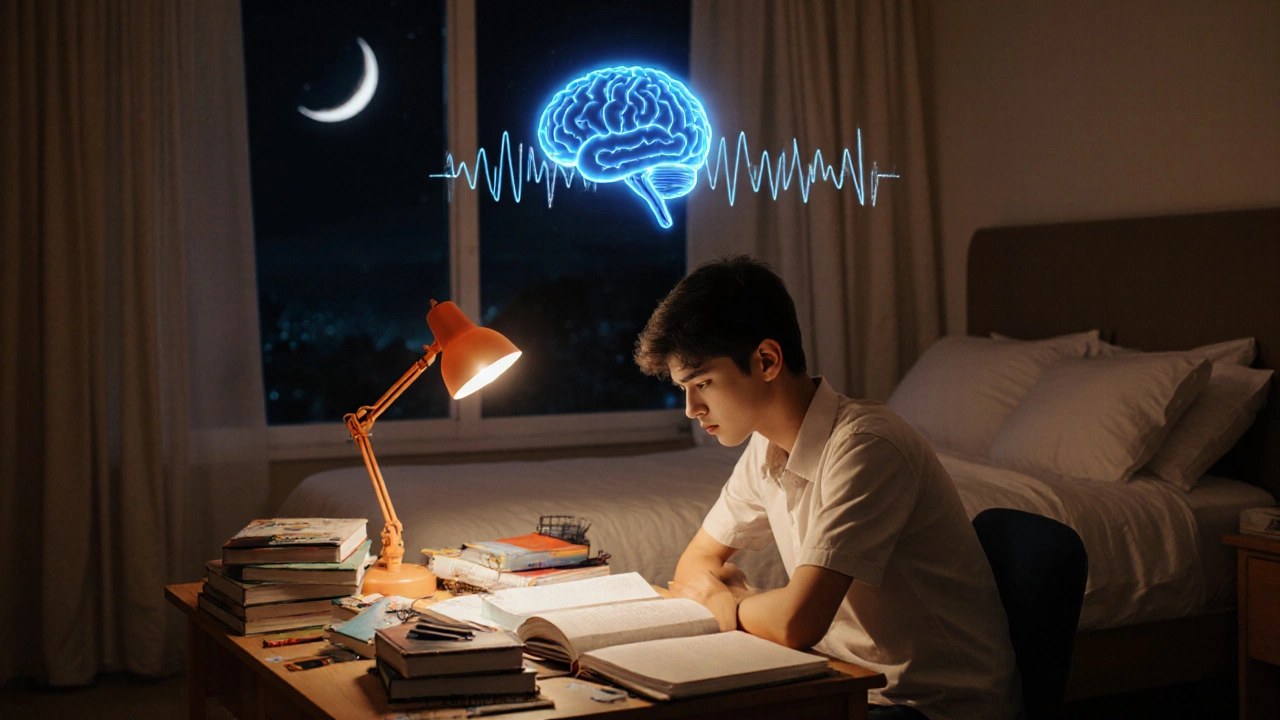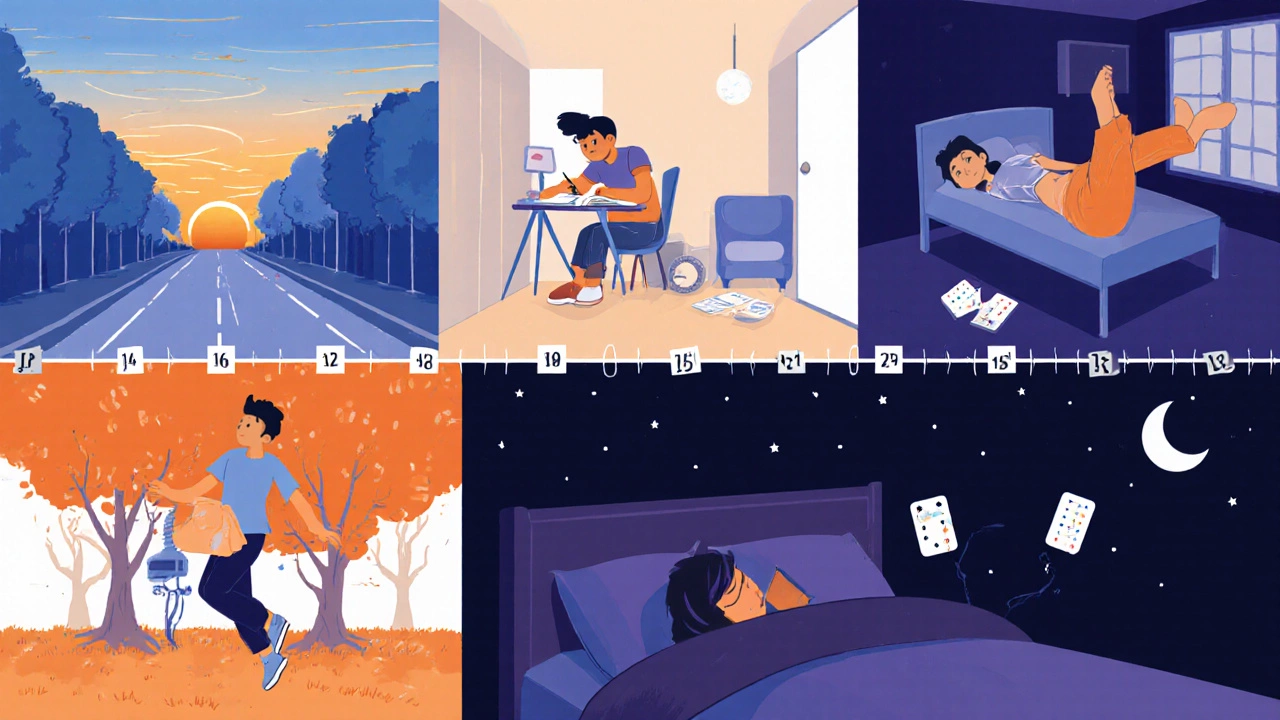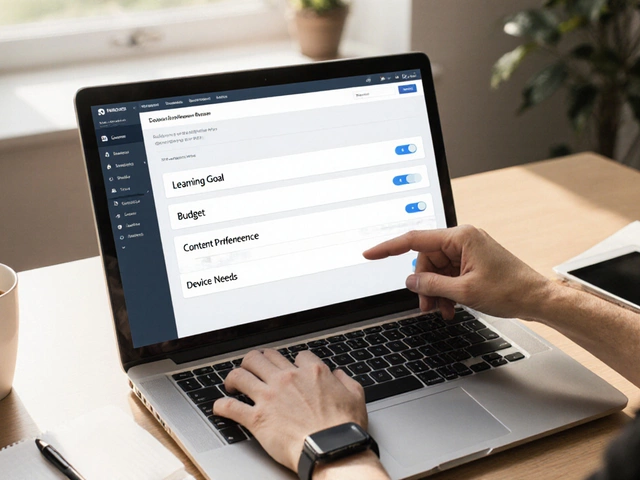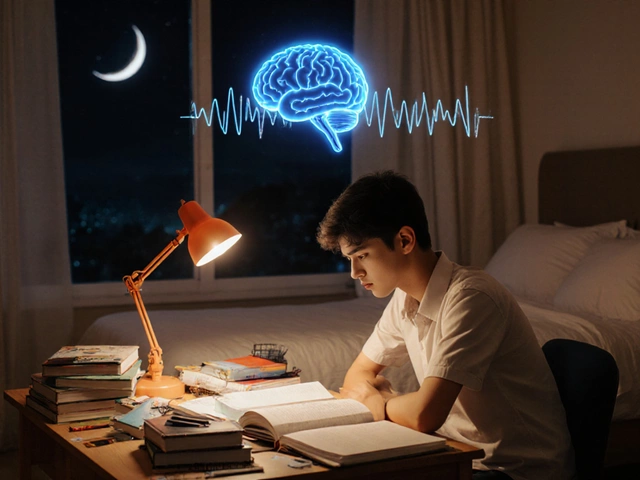
JEE Sleep Calculator
Optimize Your Sleep for JEE Success
Based on research from IITs and the National Institute of Mental Health, 7-9 hours of quality sleep is optimal for memory consolidation, cognitive performance, and exam results. This calculator helps you determine your ideal sleep duration based on your study schedule.
Your Sleep Profile
Your Ideal Sleep Recommendation
Research shows students who sleep 7-9 hours score 12-15 points higher in physics and chemistry mock exams compared to those with less sleep.
Personalized Recommendations
Based on data from a 2023 survey of 1,200 JEE aspirants and studies from IITs
When prepping for the Joint Entrance Examination (JEE) India's premier engineering entrance test, most students obsess over study hours, mock tests, and topic‑wise revisions. But one factor gets sidelined despite solid science behind it: JEE aspirant sleep. How many hours should a serious candidate actually sleep, and why does it matter?
Why Sleep Is More Than Just Rest
Sleep a reversible physiological state that restores brain and body functions is the brain’s nightly maintenance crew. During REM sleep a phase rich in rapid eye movements and vivid dreaming, the hippocampus consolidates newly learned information, turning short‑term memory into long‑term retention. Studies from Indian Institutes of Technology and the National Institute of Mental Health have shown that students who get 7‑9 hours of quality sleep score, on average, 12‑15 points higher in physics and chemistry mock exams.
Beyond memory, cognitive performance the ability to think, reason, and solve problems efficiently suffers dramatically after just one night of 4‑hour sleep. Reaction time slows, attention lapses, and the prefrontal cortex-responsible for logical reasoning-operates at roughly 60% capacity. For a JEE candidate, that translates to missed tricky questions and avoidable calculation errors.
What Science Says About Ideal Sleep for Teens
Teenagers (15‑18 years) are in a rapid growth phase. The American Academy of Sleep Medicine recommends 8‑10 hours per night, while the Indian Ministry of Health’s adolescent health guidelines settle on 7‑9 hours. The sweet spot-where memory consolidation, hormone regulation, and mood stability intersect-lies around 8.5 hours.
Key physiological markers supporting this range include:
- Melatonin peak: Occurs between 02:00‑04:00am; adequate night length lets the body hit this natural lull.
- Growth hormone surge: Peaks during deep slow‑wave sleep the restorative phase of non‑REM sleep, essential for body growth and tissue repair.
- Stress hormone (cortisol) dip: Aligns with nighttime, reducing anxiety that can sabotage morning study sessions.

Typical Sleep Patterns Observed Among JEE Aspirants
Several coaching institutes have surveyed their batches. A 2023 poll of 1,200 JEE‑2024 aspirants revealed the following average nightly sleep durations:
| Category | Avg. Sleep (hrs) | Avg. Study Hours (day) | Mock Test Avg. Score |
|---|---|---|---|
| Sleep‑Focused (7‑9 hrs) | 8.2 | 6‑7 | 89 |
| Sleep‑Deprived (<6 hrs) | 5.4 | 10‑12 | 73 |
| Balanced (6‑7 hrs) | 6.5 | 8‑9 | 81 |
The data clearly shows a positive correlation between adequate sleep and higher mock‑test scores, even when study hours are slightly lower.
How Sleep Deprivation Impacts JEE Performance
When a student consistently sleeps less than 6 hours, several detrimental effects emerge:
- Reduced attention span: Ability to stay focused on lengthy problem statements drops by up to 40%.
- Impaired problem‑solving speed: Time taken to apply formulas and reason through physics concepts increases, leaving less time for the tough questions.
- Memory decay: Information learned the previous day is only half as likely to be recalled during the exam.
- Mood swings: Irritability leads to “test‑day anxiety,” which further hampers performance.
These effects are not just anecdotal. A 2022 longitudinal study of 300 engineering undergraduates found that those who maintained 8‑9 hours of sleep throughout the semester scored an average of 5.8% higher in final JEE results compared to their sleep‑restricted peers.

Designing a Sleep‑Friendly Study Schedule
Balancing 8‑hour sleep with 6‑8 hours of focused study is doable with a structured routine. Below is a sample day that respects the body’s circadian rhythm the natural 24‑hour biological clock governing sleep‑wake cycles:
- 06:30am - Wake up: Light exposure (sunlight or bright lamp) signals the brain to suppress melatonin.
- 07:00‑09:00am - Core study block: Tackle high‑concentration topics (e.g., calculus, electromagnetism).
- 09:00‑09:30am - Short break: Light stretching, hydration.
- 09:30‑11:30am - Second study block: Practice problems, mock test analysis.
- 12:00‑01:00pm - Lunch & power‑nap (optional): 20‑30 minutes of sleep can boost alertness without entering deep sleep.
- 01:30‑04:00pm - Third study block: Lighter revision, video lessons, concept mapping.
- 04:00‑05:00pm - Physical activity: Jogging or yoga reduces stress physiological response that can impair sleep quality.
- 05:30‑07:00pm - Dinner & family time: Helps unwind.
- 07:30‑09:00pm - Light review: Flashcards, formula sheets (avoid new concepts).
- 09:30pm - Begin bedtime routine: Dim lights, screen‑free, maybe a short meditation.
- 10:00pm - Sleep: Aim for 8‑9 hours of uninterrupted rest.
Adjust the slots to fit personal school timings, but keep the core principle: heavy learning early in the day, winding down at night.
Practical Tips to Boost Sleep Quality
- Consistent sleep‑wake times: Even on weekends, stay within 30 minutes of your weekday schedule.
- Screen curfew: Stop using phones, laptops, or tablets at least 45 minutes before bed; the blue light suppresses melatonin.
- Optimize bedroom environment: Cool temperature (18‑20°C), darkness, and a comfortable mattress are non‑negotiable.
- Mindful breathing: 4‑7‑8 breathing technique reduces heart rate and prepares the brain for sleep.
- Avoid stimulants after 4pm: Caffeine in tea, coffee, or energy drinks can linger for up to 6 hours.
- Limit heavy meals late night: Digestion spikes body temperature, making it harder to fall asleep.
- Use short power‑naps wisely: Keep them under 30 minutes to avoid sleep inertia.

Quick Checklist for JEE Sleep Success
- Target 7‑9 hours of sleep each night.
- Schedule study blocks before 7pm wherever possible.
- Turn off screens 45 minutes prior to bedtime.
- Create a dark, cool, and quiet sleep environment.
- Incorporate a brief evening meditation or breathing exercise.
Frequently Asked Questions
How many hours should a JEE aspirant sleep on exam day?
Aim for the same 7‑9 hours you get on regular study days. Consistency keeps the circadian rhythm stable, which helps focus during the 3‑hour test.
Can a short nap replace a full night's sleep?
A 20‑30 minute power‑nap can boost alertness, but it cannot replicate the deep‑sleep processes that consolidate memory. Use naps as a supplement, not a substitute.
Is it better to study late at night if I can’t sleep early?
Late‑night cramming often leads to fragmented sleep and poorer recall. Shift the heavy topics to earlier in the day and keep night sessions light (revision, flashcards).
What are the warning signs of sleep deprivation?
Frequent yawning, difficulty concentrating, irritability, and forgetting formulas you just studied are classic red flags. If you notice two or more, revisit your bedtime routine.
Does caffeine help me study better if I’m short on sleep?
Caffeine can mask fatigue temporarily, but it also disrupts the subsequent night’s sleep, creating a vicious cycle. Limit intake to early morning and avoid it after 4pm.







